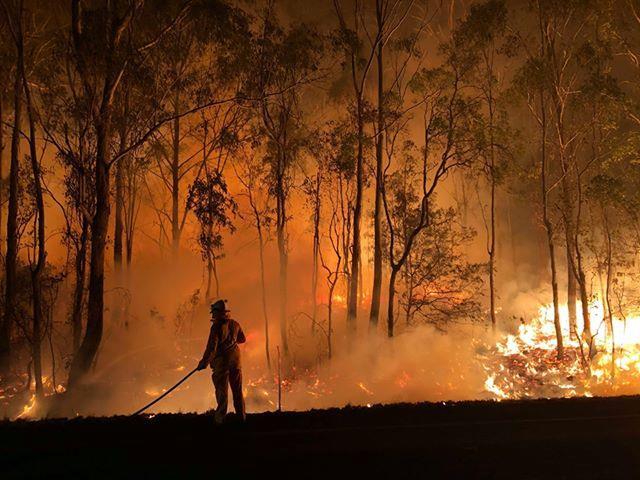Staff at the CFA’s Fiskville training centre were exposed to unknown chemicals for decades, a former fireman has told a parliamentary inquiry.
The inquiry is investigating contamination of the site near Ballan, after numerous people who worked or trained there have been diagnosed with various cancers.
A second day of hearings got under way yesterday at Parliament House.
Former RAAF fireman Graham West was a trainee at Fiskville in 1975. He told the inquiry he was exposed to the chemicals he helped unload off trucks.
“Towards the end of my service in 1980, I was posted to the RAAF fire-training school base at Point Cook. Part of my job there was to assist the [officer in charge] to take a truckload of unknown chemicals, which had been brought to the fire school from different chemical companies in the Altona area, to Fiskville,” Mr West said.
“I, with others, took truckloads of these drums down many, many times to Fiskville. These were 44-gallon drums of totally unknown chemicals. I do know, without doubt, that one delivery I was involved with … was to unload four 44-gallon drums of what I had been told by the [officer in charge] was Agent Orange, together with 15 to 20 other drums of these [other] chemicals.”
In January, the state government released a report from Monash University that showed high cancer rates among people who had worked and trained at Fiskville. The government closed the site because of contamination in March.
Mr West said he attended the training centre many times over the years as an instructor.
“I only wish I had a camera at the time to photograph the colour of the flames from the fire pit, as well as the rainbow-coloured smoke from the chemicals that had been set fire to. We now have many ex-firemen, like myself, who have many different illness that can be attributed to being exposed to these chemicals.”
The inquiry last week opened with testimony from Monash University expert Professor Malcolm Sim, whose report found elevated rates of cancer among more than 600 people who were at the site between 1971 and 1999.
Environment, natural resources and regional development committee chair Bronwyn Halfpenny said people affected by Fiskville are “helping us understand the scale of this issue.”
Details: http://bit.ly/1HrjFLY

















